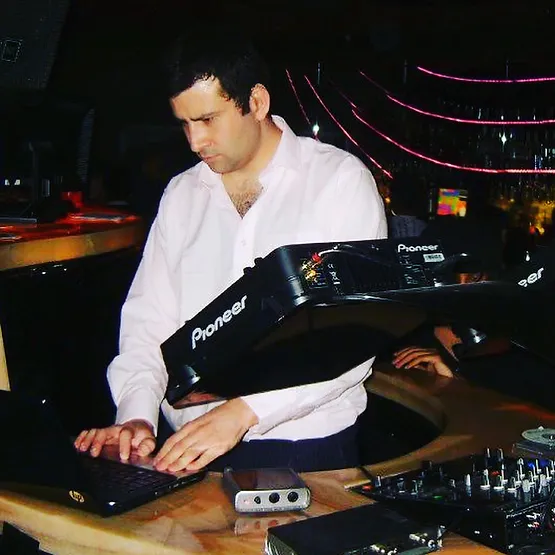Whether physical, mental, visible, or invisible, one in six of us has a disability[1]. But many will cover it up for fear of missing out on opportunities, especially when it comes to careers.
In this interview, we speak to Spencer Collins, Recruitment & Workplace Support Officer at Admiral.
Collins – who cannot hear because he has Tinnitus – is on a mission to support financial services and help them do better. He’s encouraging offices and workplaces to become inclusive for everyone.

About Spencer Collins 🕺
Q: What motivated you to follow a career in diversity and inclusion?
An inclusive workplace encourages equality, diversity, and inclusion, and can help improve customer service, increase employee happiness, and prevent legal issues like bullying, harassment, and discrimination.
About the workplace 🏢
Q: Traditionally, financial services have been pretty rubbish when it comes to employing a diverse workforce. For example, just 1% of investment managers are Black. And less than 20% of senior leaders are women. Why do you think this is?
We live in a complex society, since many diverse employees feel their employers are undervaluing their contribution or improving their workplace inclusion.
However, it takes time and commitment to create a more inclusive workplace culture for all diverse employees to be comfortable, confident, and equal happy at work.
Due to a lack of open-mindedness and awareness, most bosses do not engage their employees in career choices in today’s uncertain economy. In truth, it is masking the fact that the real reasons are data-driven, headcount-based, etc.
They will likely appreciate insights, observations, or suggestions if they don’t turn into sermons, and what’s the result of the financial companies conducting an effective annual performance review of their diverse employees?
You’ll be the judge.
Q: Do you think that enough consideration is given to employing people who have invisible challenges? (For example, being hard of hearing or deaf).
You’ll be surprised the human mind likes to organise the world by categorising things and this can lead to bias, even if it is completely opposed to those who have hidden disabilities. Raising diversity and inclusion awareness of it may prevent them from influencing their behaviour or attitude.
During the period July through November 2020, the Office for National Statistics (ONS) reported that 21.1 out of 1,000 disabled employees were laid off, compared to 13 out of 1,000 non-disabled employees. As a result of global events, redundancies increased during this period. There has been a faster rate of redundancy increases in the UK between September and November 2020 than during the recession.
However, these figures have left a question unanswered: why were disabled employees more likely to be laid off? Why do most bosses never have the opportunity to put it right?
At the end of the day, every single one of us has unconscious biases.
Q: How can banks and financial services improve?
Monitoring and evaluating diversity and inclusion practices regularly, to ensure employees are provided with human touch-based training.
It is important to remember that every worker brings a unique talent to the organisation that, if managed effectively, can benefit every department.
This approach also helps to foster an inclusive, collaborative environment in the workplace, which is essential in establishing and maintaining a competitive advantage.
Advanced technology has improved the user experience, such as live chat software with closed captions, diary management and immersive training to enable remote engagement.
Furthermore, the financial services should understand how inclusion works in the workplace, and employees must be upfront about any other considerations that may arise, as well as legal compliance.
Q: If you could say one thing to an HR manager in a bank, what would it be?
Everyone should be treated with respect. It’s all about attitude.
About Financial products and services 🛒
Q: Since there’s so little diversity in finance, the products and services are not designed for everyone. What are some of the challenges people face with traditional financial services?
- Inaccessible language: The language barrier in communication is the difficulty of understanding or understanding the language used in communication. This problem is caused by aspects of language use that make communication difficult. This concern also affects traditional financial services employees.
- Unsuitable channels: A personal approach is no longer required. Many financial service companies use alternative channels to deliver their services such as call centres, which made it difficult for those who struggle to manage their bank account because of their disability, age, race, gender, etc.
- Discrimination: There are still documented cases of financial companies letting down disabled people due to disability discrimination, which should be a thing of the past, like scurvy and rationing.
Q: Do you know of any financial services that are doing a really good job?
So far, the best accessibility solutions I’ve tested are –
- Monzo
- Starling Bank
- Nationwide Building Society
👍👍👍
Q: Is there a gap in the market? What’s missing in financial services?
The answer is YES!
To achieve all these objectives, the bank must grow and recruit EDI (Equality, Diversity and Inclusion) managers, those with inclusion experience, to improve culture and behaviour strategies to attract and retain the most talented and inclusive workforce to support all these business requirements, improve efficiency, and improve the bottom line.
The investment will pay off in the long run.
Q: Any final thoughts?
Since the pandemic began, I have been working as a volunteer for eight organisations to improve employee satisfaction, as well as customer services, and prevent legal issues such as harassment, bullying, and discrimination.
Q: Tell me something I don’t know!
Prepare to fasten your seatbelt.
I have performed internationally as a DJ. Tinnitus was the real reason, and it is always there. It can’t be treated. I have had it for a long time. However, my goal is to share my experience, so people can appreciate it and know how to overcome tinnitus problems.
And guess what? My words have opened people’s eyes. 🙌




